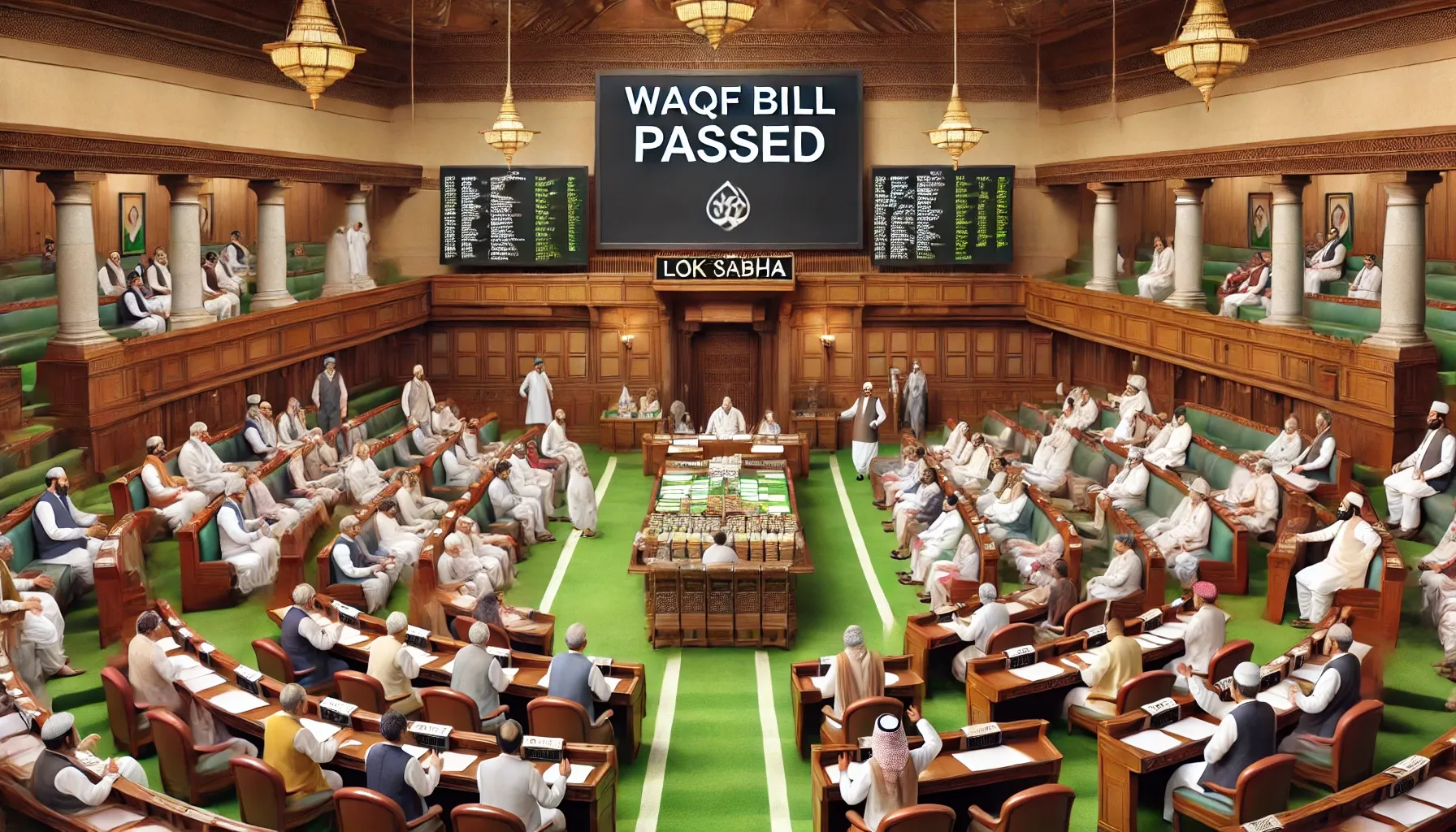UPSC
PIB
Waqf (Amendment) Bill, 2025: Debunking Myths and Understanding Facts
Last Updated
5th April, 2025
Date Published
5th April, 2025
Share This Post With Someone

The Waqf (Amendment) Bill, 2025, introduced by the Government of India, seeks to modernise the management of waqf properties under the Waqf Act, 1995. Amidst debates and misinformation, the Press Information Bureau has clarified myths and facts surrounding the bill. This summary provides a concise yet comprehensive overview of its provisions, addressing misconceptions and highlighting its intent, making it a critical topic for aspirants preparing for competitive examinations focusing on governance, polity, and social issues.
 Bill, 2025 Debunking Myths and Understanding Fact.webp?2025-04-05T11:32:18.311Z)
Key Points:
Myth 1: Revocation of Waqf Properties
- Fact: No property registered as waqf under the Waqf Act, 1995, prior to its commencement will be revoked.
- Explanation: The bill ensures permanence of legitimately declared waqf properties, focusing on better management and transparency. The District Collector can review misclassified properties (e.g., government land wrongly listed as waqf), but legitimate waqf assets remain protected.
Myth 2: No Surveys of Waqf Properties
- Fact: Surveys will continue, conducted by the District Collector instead of the Survey Commissioner.
- Explanation: The shift to District Collectors leverages existing revenue procedures to enhance record accuracy, ensuring surveys remain integral to waqf management.
Myth 3: Non-Muslim Majority on Waqf Boards
- Fact: Non-Muslims will be included, but not as a majority.
- Explanation: The bill mandates at least two non-Muslim members (excluding ex-officio) on the Central Waqf Council (max 4 non-Muslims) and State Waqf Boards (max 3 non-Muslims). The majority will still be Muslim, balancing expertise and transparency with community representation.
Myth 4: Acquisition of Muslims’ Personal Land
- Fact: No personal land will be acquired.
- Explanation: The bill applies only to properties voluntarily declared as waqf, leaving private or personal property unaffected.
Myth 5: Government Takeover of Waqf Properties
- Fact: No seizure of legitimate waqf properties is authorized.
- Explanation: An officer above the rank of District Collector can verify if government property is misclassified as waqf, but the bill does not permit taking over valid waqf assets.
Myth 6: Non-Muslim Control Over Waqf Wealth
- Fact: Non-Muslims will not control waqf wealth.
- Explanation: The inclusion of up to 4 non-Muslims in the Council and 3 in the Boards adds expertise and oversight, but the Muslim majority retains control over religious affairs.
Myth 7: Impact on Historic Waqf Sites
- Fact: The religious and historical status of waqf sites (e.g., mosques, dargahs, graveyards) remains unchanged.
- Explanation: The bill targets administrative transparency and fraud prevention, not the sacred nature of these sites.
Myth 8: Loss of Traditions Due to Removal of ‘Waqf by User’
- Fact: Long-established waqf properties are protected unless disputed or government-owned.
- Explanation: Removing ‘waqf by user’ prevents unauthorized claims, requiring formal declarations for recognition. Traditional waqf sites (e.g., mosques) remain waqf unless contested, reducing disputes while respecting history.
Myth 9: Interference in Community Rights
- Fact: The bill does not undermine the Muslim community’s right to manage religious affairs.
- Explanation: It aims to enhance record-keeping, curb mismanagement, and ensure accountability, supporting efficient administration of waqf properties without altering community control.
Key Terms:
- Waqf: Property dedicated for religious or charitable purposes under Islamic law.
- Waqf Act, 1995: Legislation governing the administration of waqf properties in India.
- District Collector: Senior administrative officer responsible for revenue and land-related duties.
- Central Waqf Council: National body overseeing waqf management and policy.
- State Waqf Boards: State-level entities managing waqf properties locally.
- Waqf by User: Property recognized as waqf due to prolonged religious use, without formal declaration.
- Transparency: Openness in administration to ensure accountability and reduce fraud.
- Mismanagement: Poor or corrupt handling of resources, targeted for reform by the bill.

UPSC
The Hindu Briefs


UPSC
Indian Express Concise